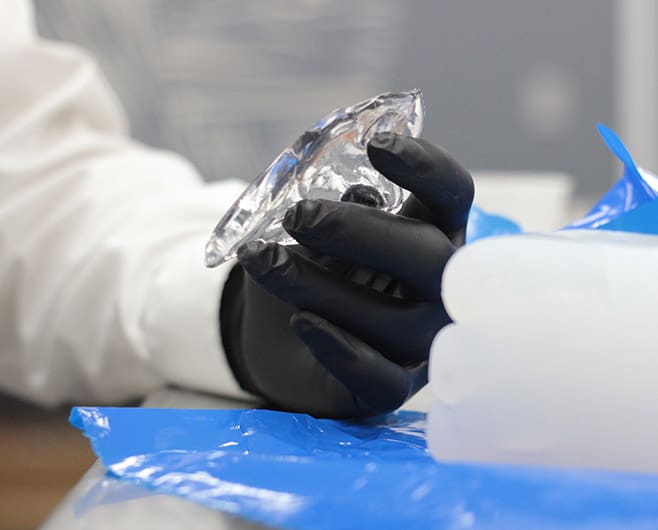
Moisture analysis is a routine test method in many industries, including the food, pharmaceutical, oil and rubber industries.
Understanding the moisture content of a material is important for quality control as well as health and safety protection. Choose a credible, dependable laboratory like ACE for moisture analysis to ensure you receive repeatable, reliable results.
What is Moisture Analysis?
During moisture analysis, laboratory technicians measure the moisture content in a sample. This sample can be a solid, liquid, or gas, including compounds and raw materials.
What is the importance of moisture analysis? In many fields, including polymer production, pharmaceuticals and heat treatment, trace moisture in solids must be carefully controlled. Moisture analysis methods are also common for analyzing dry air and hydrocarbon processing and can be used on pure semiconductor gases, bulk pure gases, dielectric gases and natural gas pipeline transport.
How it Works: Moisture Analysis Procedure
To measure moisture, technicians use a Loss On Drying (LOD) method. In this moisture analysis method, a sample is first weighed in its natural state. Then, it is heated up in order to dry it out. The sample is then re-weighed once it is dry. The difference between the sample’s mass before and after heating determines the loss of moisture.
The way a moisture analyzer generates heat can vary from machine to machine. Some use halogen, while others use infrared or metal heaters positioned above a balance. A laboratory may also use a specialized oven to analyze solid samples or certain unique liquid samples through vaporization of moisture. For highest precision laboratories utilize TGA (thermogravimetric analysis) to measure moisture of volatility content.
With state-of-the-art moisture analysis technology, laboratories like ACE are able to cut back on downtime by using advanced computer interfaces. This technology allows specific test parameters to be saved in the machine’s memory. This speeds up turnaround time for samples that are frequently tested under the same conditions.
Moisture Analysis Testing on Compounds & Raw Materials
Moisture analysis testing is appropriate for both compound and raw materials. The experienced staff at ACE Laboratories will recommend the best testing strategy for your unique material and its application.
Understanding the moisture content in a material is important in many different industries.
For example, in the food industry, excess moisture can pose a safety risk. If a food product is too moist, can become stale or harbor bacteria. An insufficient amount of moisture can cause food to taste bland and dry and since many food items are sold by their weight, moisture analysis can also help manufacturers communicate actual weight, excluding water weight. During the fabrication of rubber components, moisture can cause porosity or inhibit the chemical reaction to vulcanize the component.
Moisture analysis procedures are also used for quality control in many fields. For example, these methods are useful in determining the water content of crude oil or fuel. Moisture analysis for plastics is important for meeting performance expectations and maintaining quality.
ACE Laboratories
When it comes to moisture analysis testing, manufacturers rely on fast, repeatable and precise lab results. That’s why our clients rely on ACE’s experienced staff and top quality laboratory for their moisture analysis procedures. With the fastest turnaround times in the industry and decades of experience in the polymer industry, we pride ourselves on excellent service.
Interested in working with ACE? Contact us today.
